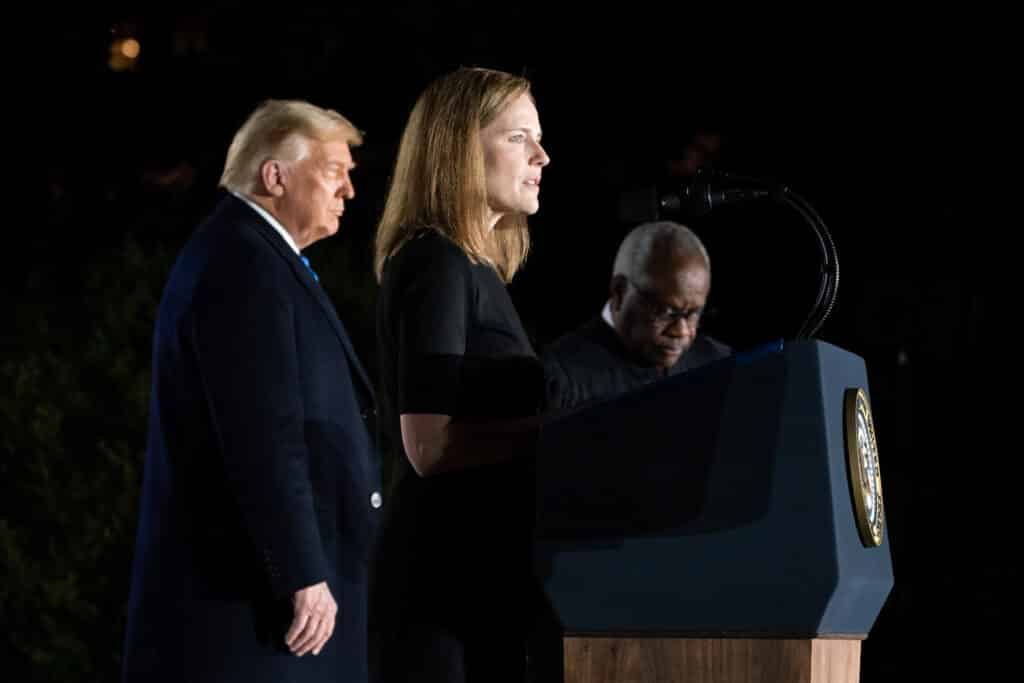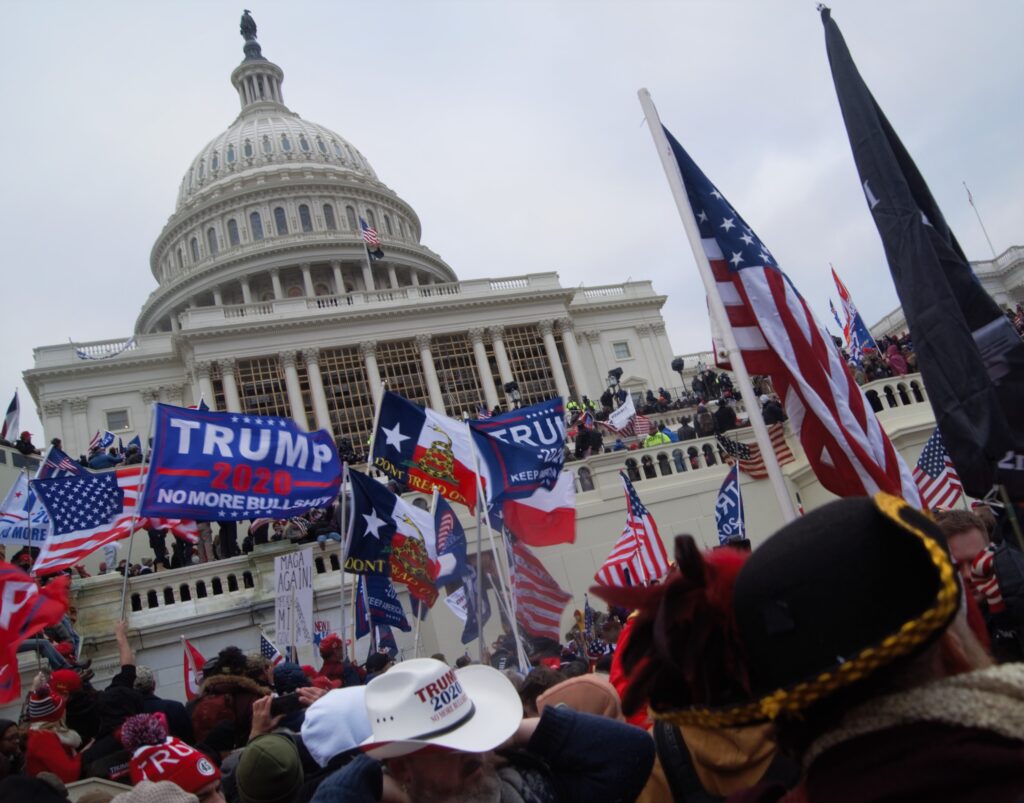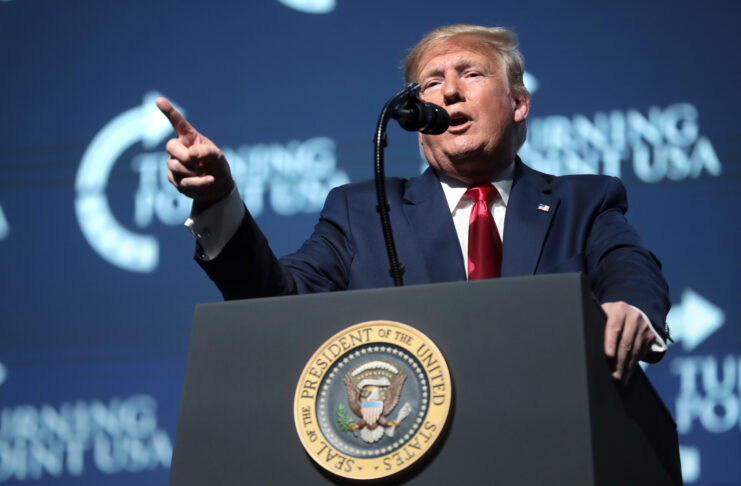On Monday, the conservative-leaning Supreme Court of the United States ruled 6-3 that presidents are entitled to absolute immunity for official acts conducted while in office. However, this presidential immunity does not extend to unofficial acts.
In an interesting turn, Justice Amy Coney Barrett, appointed by Donald Trump, diverged from the court's right flank. (RELATED: Protestors Covered In Fake Blood Harass Amy Coney Barrett's Family)
Barrett filed her own opinion, concurring only in part with the majority.
Per CNN:
In a concurrence, Justice Amy Coney Barrett, appointed by former President Donald Trump in 2020, expressed frustration with how the court was sending the case back down for more proceedings.

“I would have framed the underlying legal issues differently,” Barrett said.
She suggested that because Trump's wholesale challenge to the indictment had failed, at least some of the case could go forward.
Barrett wrote that “a President facing prosecution may challenge the constitutionality of a criminal statute as applied to official acts alleged in the indictment.”
“If that challenge fails, however, he must stand trial,” she noted.
Barrett took issue with how the court had ruled that evidence from Trump's official acts should be excluded from the trial, writing that there was no reason to depart from the “familiar and time-tested procedure” that would allow for such evidence to be included.
Last Friday, the Supreme Court potentially derailed scores of the Justice Department's cases against Jan. 6 defendants by making it more challenging to charge them with obstruction.
Justice Ketanji Brown Jackson, appointed by President Biden, joined the majority in the landmark decision. Barrett broke away from her conservative peers and sided with the minority. (RELATED: Supreme Court Narrows Key Obstruction Law Used In Jan. 6 Prosecutions)
Implications of That Decision
Last week's decision directly impacts cases like that of Joseph Fischer, a former police officer from Pennsylvania. Fischer, who participated in the U.S. Capitol riot, faces an obstruction charge among several other accusations, including assaulting a police officer and disorderly conduct.

Fischer's appeal specifically targeted the obstruction charge under Section 1512(c)(2). His defense argued that this statute, originally crafted to tackle evidence tampering following the Enron scandal, was being misapplied to his actions on Jan. 6.
A Closer Look at the Rulings
- Presidential Immunity: The Supreme Court's ruling affirms that while presidents enjoy absolute immunity for their official acts, this protection does not cover unofficial actions.
- Justice Barrett's Stance: Amy Coney Barrett's partial concurrence highlights her willingness to break from her conservative colleagues on crucial issues.
Why This Matters
Monday's ruling and Justice Barrett's complicated position could significantly influence the landscape of presidential accountability. With the high court's conservative majority often expected to align, Barrett's divergence underscores the complexity and nuance within the judiciary's approach to these pivotal cases.
READ NEXT: Supreme Court Announces Landmark Trump Immunity Ruling



Please allow time before your comment appears, as all comments are reviewed and subject to moderation. View our Comment Policy here.